I'm having some troubles where a function isn't returning the right type, because a class isn't defined. I'm using a factory pattern.
The two error messages that I'm getting are:
'return': cannot convert from 'DLA *' to 'Layer *'
and:
'Layer': base class undefined (compiling source file src\Layer.cpp)
and this same error message is repeated for every file that includes Layer.h.
Here is what my class that inherits from Layer looks like (DLA.h):
#pragma once
#ifndef _DLA
#define _DLA
#include "ofMain.h"
#include "ofxGui.h"
#include "Layer.h"
class DLA: public Layer
{
public:
DLA();
void setup();
void update();
void draw();
private:
};
#endif
and here is my Layer class header (Layer.h):
#pragma once
#ifndef _LAYER
#define _LAYER
#include "ofMain.h"
#include "ofxGui.h"
#include "DLA.h"
enum SceneType
{
Scene_None,
Scene_Default,
Scene_DLA,
};
class Layer
{
public:
void setup();
void update();
void draw();
static Layer *CreateSimulation(SceneType Type);
private:
};
#endif
The function which is failing is this one, situated in Layer.cpp:
Layer *Layer::CreateSimulation(SceneType Type)
{
switch (Type)
{
case Scene_None:
default:
return nullptr;
case Scene_DLA:
return new DLA();
}
}
I've tried everything I could find on Stack Overflow that had similar issues to mine but I've seen some people recommend very subtle code indentation to fix this, so I'm really lost as to find where the problem is.
